Eye health is an essential part of overall well-being, and it’s important to be aware of the many conditions that can affect your vision. Two common eye problems that many people experience as they age are glaucoma and cataracts.
Keep reading to learn more about glaucoma and cataracts, whether they can develop simultaneously, and if they can be treated at the same time!
What is Glaucoma?
Glaucoma is a group of eye diseases that damage the optic nerve, which is responsible for transmitting visual information from the eye to the brain. This damage is often caused by increased pressure within the eye, known as intraocular pressure (IOP).
When left untreated, glaucoma can lead to permanent vision loss. For this reason, early detection and treatment are essential to avoid irreversible vision changes.
There are two main types of glaucoma that are important to know: open-angle glaucoma and angle-closure glaucoma. Open-angle glaucoma is the most common form and develops gradually, often without noticeable symptoms, until significant damage has occurred.
Angle-closure glaucoma, on the other hand, occurs when the drainage angle in the eye becomes blocked, leading to a rapid increase in eye pressure and requiring immediate medical attention. Since angle-closure glaucoma can cause permanent vision loss very quickly, it’s important to see your doctor right away if you experience vision changes, headaches, brow aches, or nausea.
What Are Cataracts?
A cataract is a clouding of the eye’s natural lens, which lies behind the iris and pupil. The lens is responsible for focusing light onto the retina, allowing you to see clearly.
As you age, proteins in the lens can break down and clump together, causing the lens to become cloudy and less transparent. This cloudiness can lead to blurred or hazy vision, difficulty seeing at night, and increased sensitivity to glare.
Cataracts typically develop slowly and may not significantly affect vision in the early stages. However, as the clouding gets worse, it can interfere with daily activities such as reading, driving, and recognizing faces.
Cataracts and glaucoma affect two different parts of the eye and are typically not connected.
Can Cataracts and Glaucoma Develop at the Same Time?
It is possible to develop both cataracts and glaucoma at the same time. While these conditions are distinct and affect different parts of the eye, they share some common risk factors, such as age and family history.
In some cases, the presence of one condition may increase the risk of developing the other. While glaucoma itself will not cause cataracts, certain treatment methods for glaucoma can cause the lens to become cloudy more quickly, leading to the development of cataracts.
If you have cataracts and glaucoma, it is important to visit your eye doctor at Colorado Eye Consultants for regular eye exams to ensure the conditions are not worsening.
Can Cataracts and Glaucoma Be Treated at the Same Time?
The treatment for cataracts and glaucoma will depend on the severity of each condition your needs. In most cases, both conditions can be managed at the same time.
For cataracts, the primary treatment is surgery to remove the cloudy lens and replace it with an artificial intraocular lens, also known as an IOL. This procedure is typically performed on an outpatient basis and has a high success rate in restoring clear vision.
Glaucoma treatment, on the other hand, focuses on lowering eye pressure to prevent further damage to the optic nerve. There are many treatment methods for glaucoma, including eye drops, oral medications, laser treatments, or surgical procedures.
In some cases, it may be possible to combine cataract surgery with a glaucoma treatment, such as minimally invasive glaucoma surgery (MIGS). This can help address both issues in a single procedure, reducing the need for multiple surgeries and improving overall outcomes.
Your eye doctor at Colorado Eye Consultants will work with you to determine the best treatment method for glaucoma and cataracts if you are diagnosed with both conditions.
Are you experiencing changes to your vision? Schedule an appointment at Colorado Eye Consultants in Littleton, CO, today!

